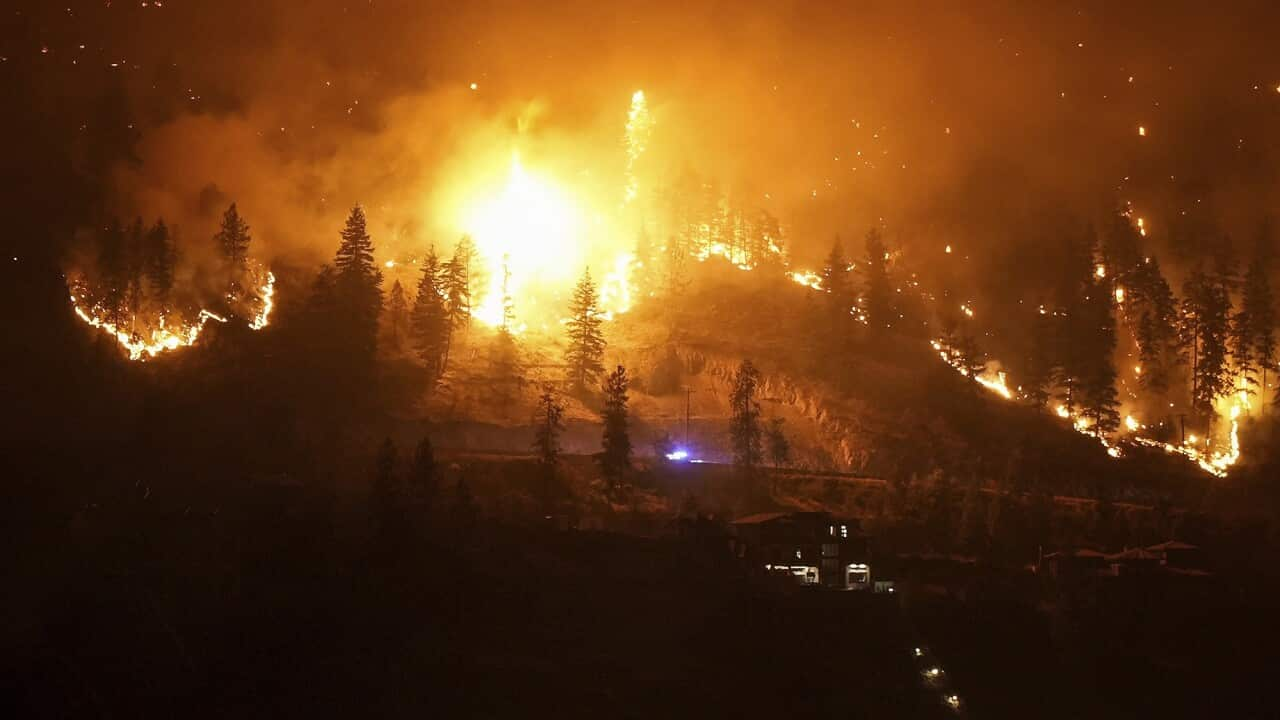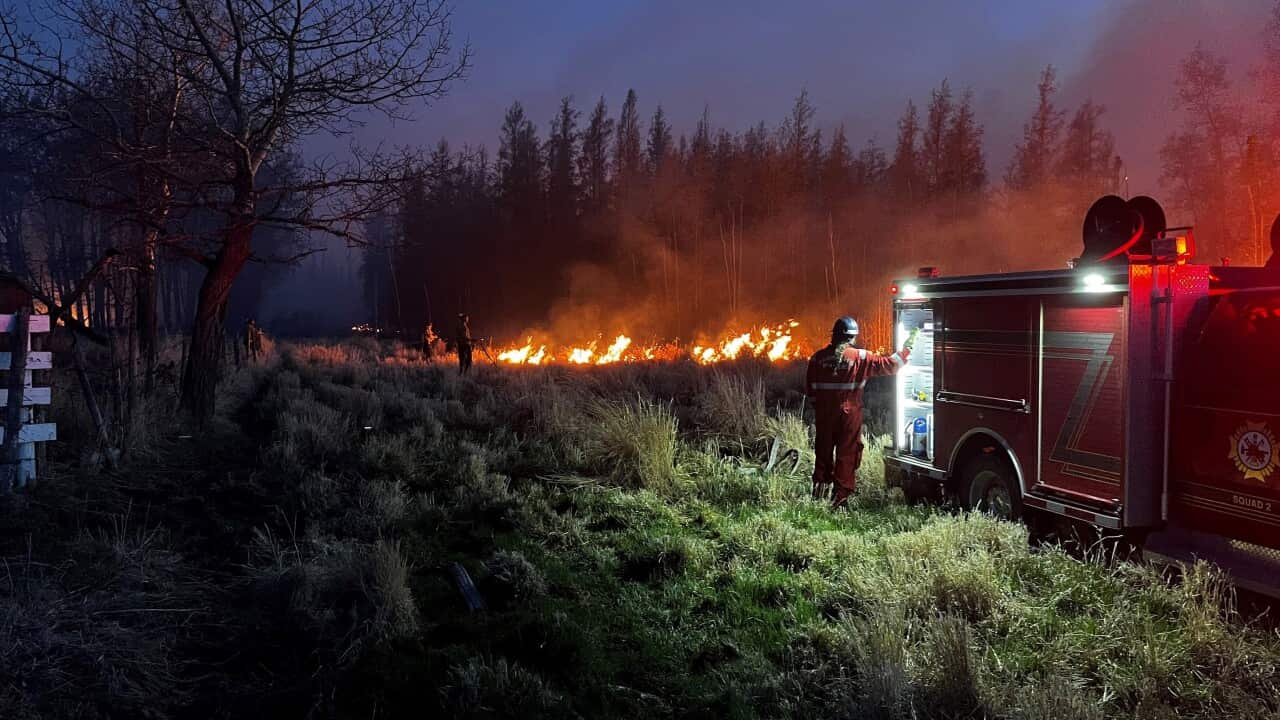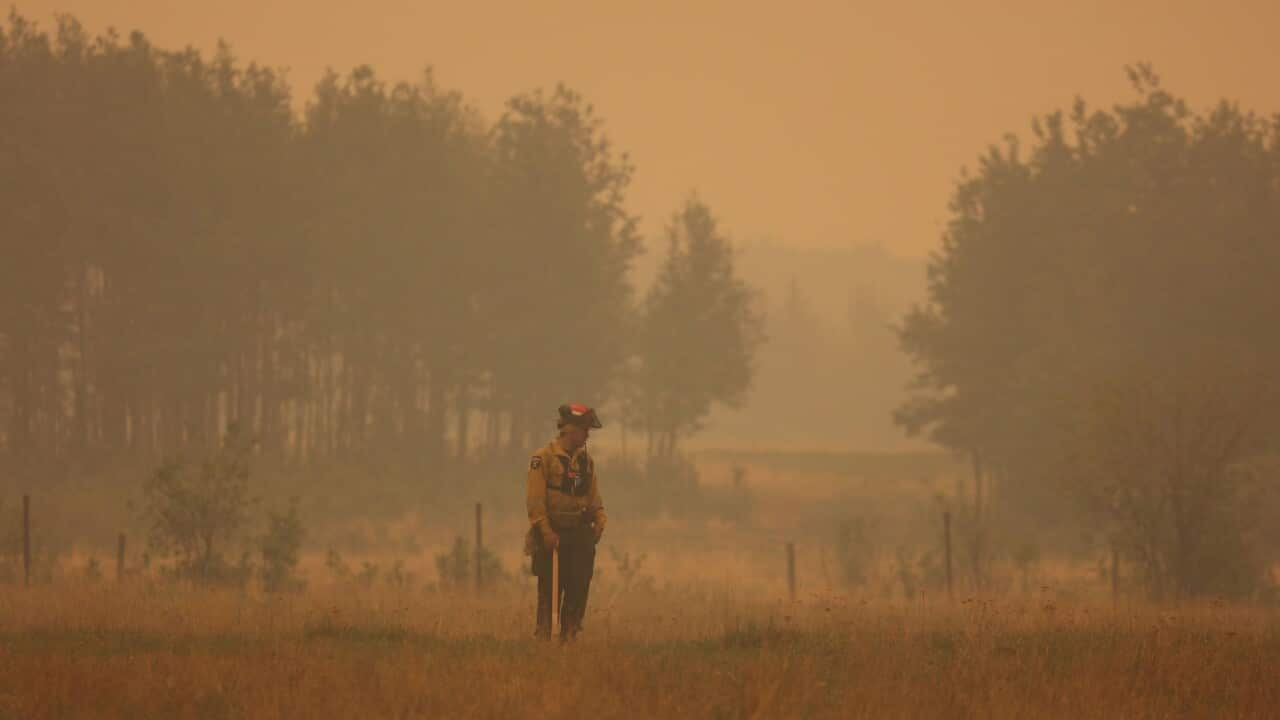Key Points
- Meta is blocking the distribution of news links and articles on Facebook and Instagram platforms in Canada.
- The block is a response to a recent Canadian law requiring digital giants to pay publishers for news content.
- As massive wildfires ravage Canada, Meta has been accused of valuing profits over human safety.
Meta is being accused of endangering lives by blocking news links in Canada at a crucial moment, when thousands have fled their homes and are desperate for wildfire updates that once would have been shared widely on Facebook.
The situation "is dangerous," said Kelsey Worth, one of nearly 20,000 residents of Yellowknife ordered, along with thousands of others in small towns, to evacuate the Northwest Territories as wildfires advanced.
Wolf, 35, described how "insanely difficult" it has been for herself and other evacuees to find verifiable information about the fires blazing across the near-Arctic territory and other parts of Canada.
"Nobody's able to know what's true or not," she said, explaining that many Canadians until now have relied on social media for news. "And when you're in an emergency situation, time is of the essence.”
Meta on August 1 started blocking the distribution of news links and articles on its Facebook and Instagram platforms in response to a recent law requiring digital giants to pay publishers for news content.
The company has been in a virtual showdown with Ottawa over the bill passed in June, but which only takes effect next year.
The Australian precedent
For those watching from Australia, this will be eerily familiar.
At about 5:30am on the morning of 18 February 2021, millions of Australians woke to find that Facebook – still yet to be rebranded as Meta – had enforced a world-first, nationwide snap blackout of news on its platforms.
The nation's news publishers were suddenly blocked from sharing any of their own content via their accounts, while users in Australia were blocked from sharing links to any news content, local or international.
Facebook users around the world were similarly prohibited from sharing links to Australian news sources.
Critically, the blackout also enveloped a number of accounts that were not news publishers.
Emergency services organisations that relied on platforms like Facebook to issue warnings about severe weather, evacuations, COVID hotspots and vaccine rollouts were affected.
As were family violence services, homelessness services, women’s shelters and other crisis centres.
The broad-stroke shutdown was an act of protest against a proposed update to Australia’s media bargaining code. The update itself was a response to long-running complaints from news outlets about the role that Google and Facebook played in the gradual erosion of news media’s financial sustainability.
In a similar move to that now being taken by Canada, the Australian government essentially sought to force tech giants like Facebook and Google to pay Australian publishers for hosting their content.
In response, Facebook turned off the lights for those publishers altogether.
However, the blackout only lasted a few days.
After reaching an agreement with the federal government to tweak the code, Facebook agreed to restore news to Australian pages.
Now, some two-and-a-half years later, history appears to be repeating itself in Canada.
Canada’s bill builds on the legislation that was previously introduced in Australia. Similarly, it seeks to support a struggling national news sector that has seen a flight of advertising dollars and hundreds of publications closed in the last decade.
It requires companies like Meta and Google to make commercial deals with Canadian outlets for the news and information – estimated in a report to parliament to be worth US$250 million ($390 million) per year – that is shared on their platforms, or face binding arbitration.
Meta, again echoing its previous clash with the Australian government, argues the bill is flawed, and insists that news outlets share content on its Facebook and Instagram platforms to attract readers, benefiting them and not the Silicon Valley firm.
Meta accused of valuing profits over safety
Canadian Prime Minister Justin Trudeau this week assailed Meta, telling reporters it was "inconceivable that a company like Facebook is choosing to put corporate profits ahead of (safety)... and keeping Canadians informed about things like wildfires."
Almost 80 per cent of all online advertising revenues in Canada go to Meta and Google, which has expressed its own reservations about the new law.
Ollie Williams, director of Cabin Radio in the far north, called Meta's move to block news sharing "stupid and dangerous."
He suggested in an interview with AFP that "Meta could lift the ban temporarily in the interests of preservation of life and suffer no financial penalty because the legislation has not taken effect yet."
Nicolas Servel, over at Radio Taiga, a French-language station in Yellowknife, noted that some had found ways of circumventing Meta's block.
They "found other ways to share" information, he said, such as taking screenshots of news articles and sharing them from personal -- rather than corporate -- social media accounts.
Information access during wildfires has 'life and death' consequences
Several large newspapers in Canada such as The Globe and Mail and the Toronto Star have launched campaigns to try to attract readers directly to their sites.
But for many smaller news outlets, workarounds have proven challenging as social media platforms have become entrenched.
Public broadcaster CBC in a letter this week pressed Meta to reverse course.
"Time is of the essence," wrote CBC president Catherine Tait. "I urge you to consider taking the much-needed humanitarian action and immediately lift your ban on vital Canadian news and information to communities dealing with this wildfire emergency."
As more than 1,000 wildfires burn across Canada, she said, "The need for reliable, trusted, and up-to-date information can literally be the difference between life and death."
Meta - which did not respond to AFP requests for comment - rejected CBC's suggestion.
Instead, it urged Canadians to use the "Safety Check" function on Facebook to let others know if they are safe or not.
Patrick White, a professor at the University of Quebec in Montreal, said Meta has shown itself to be a "bad corporate citizen."
"It's a matter of public safety," he said, adding that he remains optimistic Ottawa will eventually reach a deal with Meta and other digital giants that addresses their concerns.













